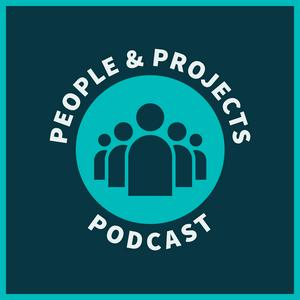PPP 465 | What If You Got Laid Off Tomorrow? Here’s What to Do Today, with Kari Mirabal
Summary In this episode, Andy welcomes back networking expert and keynote speaker Kari Mirabal, author of You Already Have the No. Kari shares practical strategies for building authentic relationships that can help you not only survive but thrive during career transitions. They explore the challenges of networking when you're early in your career, in between jobs, or worried about losing the one you have. Kari unpacks how to make the most of platforms like LinkedIn, how to overcome fear and rejection, and the value of making the ask—even if you think the answer will be “no.” She also shares a powerful reframe tool (LTR: Lie, Truth, Reframe) to help you move past limiting beliefs. Whether you're navigating a job change, building your personal brand, or trying to future-proof your career, Kari’s approachable, energizing advice is just what you need. If you’re looking for insights on how to build relationships that open doors, this episode is for you! Sound Bites “You already have the no before you ask. So what do you have to lose? Nothing.” "Sales is not synonymous with networking, but service is." "Sometimes it wasn’t the person who was most qualified that got the job. It was the person who marketed themself the best." "Be a stalker, liker, commenter, poster." “Don’t wait until you need a network to start building one. Build the well before you’re thirsty.” “Asking is not a sign of weakness. It’s a sign of strength.” “Confidence is a skill. The more you practice, the stronger it gets.” “LinkedIn changed my life, and it can change yours too.” Chapters 00:00 Introduction 02:04 Start of Interview 02:14 Were You Always a Natural Networker? 04:34 Is LinkedIn Still Worth It? Tips for Beginners 08:08 How to Make the Ask, Even if You're New 13:02 How Kari’s Son Landed an Internship Through Networking 17:21 Advice for Making a Career or Industry Transition 25:00 What to Do If You’re Worried About Job Security 27:20 Why We Let Fear Hold Us Back and How to Reframe It 32:40 The Role of AI in Relationship Building and Job Seeking 34:40 What Parents Can Do to Help Their Kids Network Confidently 38:16 End of Interview 38:39 Andy Comments After the Interview 42:51 Outtakes Learn More You can learn more about Kari and her work at KariMirabal.com. For more learning on this topic, check out: Episode 285 for my earlier conversation with Kari. Episode 318 with John Stepper. It’s a great follow up to today’s discussion on how to build new connections and a better career. Episode 356 with Eric Barker. Eric and I talked about why everything we know about relationships is mostly wrong. Thinking About Taking the PMP Certification Exam? If you or someone you know is considering getting PMP certified, we put together a super helpful guide called The Five Best Resources to Help You Pass the PMP on Your First Try. We've helped thousands of people earn their certification. We'd love to help you too. It's totally free, and it's a great way to get a head start. Just go to 5BestResources.PeopleAndProjectsPodcast.com. Thank you for joining me for this episode of The People and Projects Podcast! Talent Triangle: Power Skills Topics: Networking, Career Development, Job Search, LinkedIn Strategy, Relationship Building, Influence, Confidence, Career Transition, Professional Growth, Emotional Intelligence, Personal Branding, Fear of Rejection, Leadership The following music was used for this episode: Music: Echo by Alexander Nakarada License (CC BY 4.0): https://filmmusic.io/standard-license Music: Chillhouse by Frank Schroeter License (CC BY 4.0): https://filmmusic.io/standard-license
